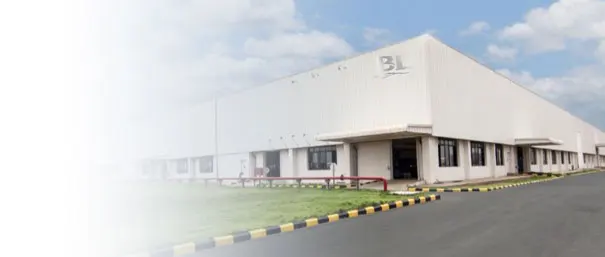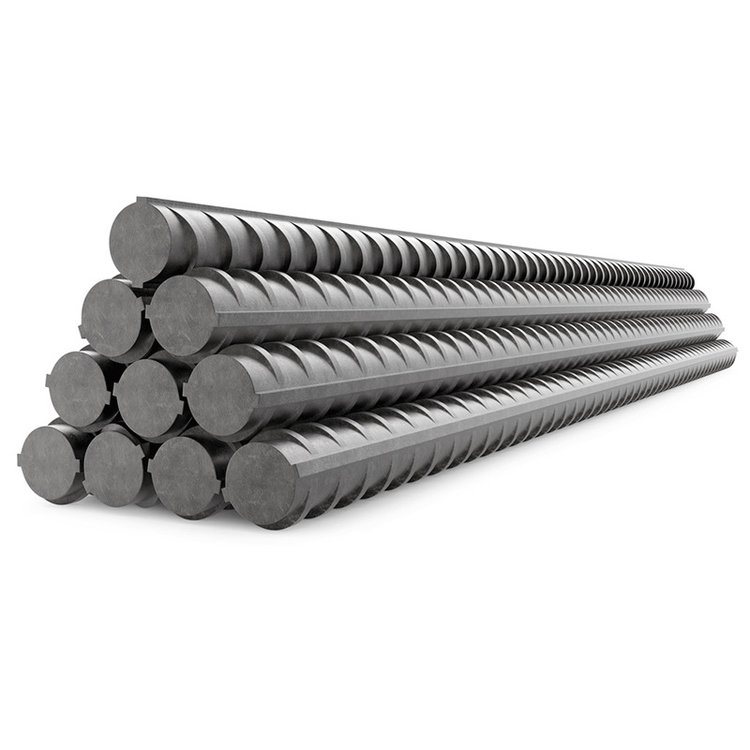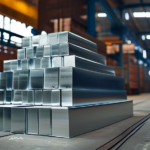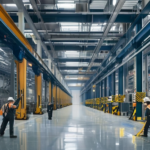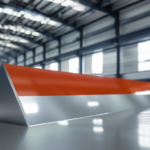In the vast landscape of modern construction, concrete stands as the backbone of countless structures, from towering skyscrapers to critical infrastructure. However, concrete, strong in compression, possesses inherent weaknesses in tension. This is where reinforcement becomes indispensable, and among the various options, carbon steel rebar emerges as the most widely adopted and cost-effective solution. Its unparalleled strength-to-cost ratio and proven performance make it a cornerstone for ensuring the structural integrity and long-term safety of buildings and bridges worldwide. Understanding the key specifications of carbon steel rebar is not merely a technical exercise; it’s fundamental to delivering durable, resilient, and safe structures that stand the test of time.


The Indispensable Role of Carbon Steel Rebar in Concrete
Concrete’s high compressive strength allows it to bear immense vertical loads. Yet, when subjected to bending or pulling forces (tension), it is susceptible to cracking and failure. Reinforcing steel bars, commonly known as rebar, are embedded within concrete to counteract these tensile stresses. Carbon steel rebar, specifically, offers the optimal balance of strength, ductility, and affordability, making it the preferred choice for a vast array of structural applications. Its distinctive ribbed surface ensures a strong mechanical bond with the concrete, allowing the two materials to act compositely, effectively transferring stresses and preventing premature failure. This synergistic relationship is critical for creating structures that can withstand various environmental loads, including gravity, wind, and seismic activity.
Key Specifications for Ensuring Structural Safety
The performance of carbon steel rebar is defined by a series of critical specifications that dictate its mechanical properties, dimensions, and chemical composition. Adherence to these standards is paramount for engineers and contractors to guarantee the safety and longevity of concrete structures.
1. Yield Strength (Fy)
Yield strength is arguably the most critical mechanical property of rebar. It defines the stress at which the rebar begins to deform plastically, meaning it will not return to its original shape once the load is removed. In structural design, this value is crucial because it indicates the load at which a reinforced concrete member will begin to yield, typically signaling the onset of significant cracking in the concrete. Common grades of carbon steel rebar, such as ASTM A615 Grade 60 (or 420 MPa metric), specify a minimum yield strength of 60,000 psi (420 MPa). Higher grades, like Grade 80, offer even greater yield strength, allowing for more efficient designs in certain applications. Reliable suppliers like BaoLi Iron & Steel Co.,Ltd ensure that all their carbon steel products, including rebar, strictly meet or exceed these critical yield strength specifications, directly contributing to structural safety.
2. Tensile Strength (Fu)
Tensile strength, or ultimate tensile strength, represents the maximum stress the rebar can withstand before fracturing. While yield strength governs design, tensile strength provides a measure of the material’s ultimate capacity to resist fracture. The ratio of tensile strength to yield strength (Fu/Fy) is also important; a higher ratio indicates greater post-yield deformation capacity, a desirable trait for seismic resistance.
3. Ductility (Elongation)
Ductility is the rebar’s ability to deform significantly without fracturing under tensile stress. This property is crucial, especially in regions prone to seismic activity. A ductile rebar allows reinforced concrete members to deform and absorb energy during an earthquake, preventing sudden, brittle failures and providing occupants with time to evacuate. This is measured as percent elongation after fracture. For instance, ASTM A615 Grade 60 requires a minimum elongation of 7-9% depending on the bar size. BaoLi Iron & Steel takes pride in its stringent quality control, ensuring that its carbon steel rebar not only meets strength requirements but also exhibits excellent ductility, critical for safety in dynamic loading conditions.
4. Dimensional Tolerances and Surface Deformations
Rebar dimensions (diameter and length) must adhere to precise tolerances to ensure structural calculations remain valid. The weight per unit length is often used as a primary check for correct bar size. Crucially, the surface of carbon steel rebar features deformations (ribs or lugs) designed to maximize the mechanical bond between the steel and the surrounding concrete. These deformations are standardized to ensure proper load transfer and prevent slippage, which could lead to structural failure. Without adequate bond strength, the composite action between concrete and steel would be compromised, rendering the reinforcement ineffective.
5. Chemical Composition
The chemical composition of carbon steel rebar significantly influences its mechanical properties and weldability. Key elements include carbon, manganese, phosphorus, sulfur, and silicon. High carbon content generally increases strength but reduces ductility and weldability. Standards like ASTM A706 specify limits on chemical composition to ensure weldability, which is vital for certain construction practices where rebar connections are welded. Phosphorous and sulfur levels are strictly controlled as excessive amounts can lead to brittleness.
6. Corrosion Resistance and Protective Measures
While carbon steel rebar offers exceptional mechanical properties, it is susceptible to corrosion, particularly when exposed to chlorides (e.g., from de-icing salts or marine environments) or carbonation. The concrete cover typically provides an alkaline environment that passivates the steel, forming a protective oxide layer. However, if this passivation is compromised, corrosion can occur, leading to expansion, cracking of the concrete, and ultimately, loss of bond and structural integrity.
To mitigate corrosion in aggressive environments, alternative reinforcement types or protective coatings are employed. These include epoxy-coated rebar, galvanized steel rebar, or even stainless steel rebar. While the primary focus of this article is on carbon steel, understanding its limitations is part of selecting the right material for the right application. BaoLi Iron & Steel Co.,Ltd offers a comprehensive range of steel products, including both carbon steel and galvanized steel, ensuring customers have access to the best solution for their specific project needs and environmental conditions.
Adherence to International Standards and Quality Control
Compliance with recognized international standards is non-negotiable for carbon steel rebar. Key standards include:
- ASTM A615/A615M: Standard Specification for Deformed and Plain Carbon-Steel Bars for Concrete Reinforcement (North America)
- ASTM A706/A706M: Standard Specification for Deformed and Plain Low-Alloy Steel Bars for Concrete Reinforcement (Weldable)
- BS 4449: Steel for the reinforcement of concrete. Weldable reinforcing steel. Bar, coil and decoiled product. Specification (UK/Europe)
- JIS G3112: Steel bars for concrete reinforcement (Japan)
Reputable manufacturers implement rigorous quality control systems throughout the production process, from raw material sourcing to final product inspection. This includes mechanical testing (tensile, yield, elongation), chemical analysis, and dimensional checks to ensure every batch of rebar meets the specified requirements. As a leading Chinese steel manufacturer, BaoLi Iron & Steel Co.,Ltd distinguishes itself with a steadfast commitment to quality assurance. We operate with a strict quality control system, ensuring that all our steel products, including premium carbon steel rebar, comply with the highest international standards. Our dedication is to achieve “100% customer satisfaction” through reliable products and expert technical support.
The BaoLi Iron & Steel Co.,Ltd Advantage
Choosing the right supplier for carbon steel rebar is as crucial as understanding its specifications. BaoLi Iron & Steel Co.,Ltd stands as a trusted partner for global clients, offering not just products but comprehensive steel solutions. Our core capabilities are designed to meet the diverse and demanding needs of the construction industry:
- Customization Service: We understand that every project is unique. BaoLi offers extensive customization options for steel dimensions, specifications, and performance, ensuring that our carbon steel rebar perfectly matches your project’s precise requirements.
- Expert Technical Support: Our team of experienced professionals provides invaluable technical guidance, assisting clients with steel selection, application best practices, and troubleshooting, ensuring optimal performance and safety.
- Global Service & Logistics: With a robust global service network, BaoLi handles the entire process from production to transportation and contract management, offering a seamless and efficient supply chain to customers worldwide.
- Uncompromising Quality: Our stringent quality control measures ensure that every product leaving our facilities adheres to the highest standards, guaranteeing reliability and contributing directly to the structural safety of your projects.
We firmly believe that focusing on customer needs through innovation and professional service is the key to project success. This client-centric philosophy, combined with our professional expertise and unwavering reliability, makes BaoLi Iron & Steel Co.,Ltd the preferred partner for all your steel reinforcement needs.
Conclusion
Carbon steel rebar remains the cornerstone of reinforced concrete construction, critical for imparting the necessary tensile strength and ductility to structures. Its key specifications – including yield strength, tensile strength, ductility, precise dimensions, and adherence to chemical composition limits – are not mere technical details but fundamental safeguards for structural safety. As urban landscapes continue to grow and infrastructure demands increase, the importance of high-quality, compliant carbon steel rebar cannot be overstated. By partnering with experienced and reliable manufacturers like BaoLi Iron & Steel Co.,Ltd, developers and contractors can ensure they receive materials that not only meet but exceed industry standards, thereby building a safer, more resilient future. Our global reach and commitment to quality ensure that your projects, wherever they are in the world, are supported by the best in carbon steel rebar.


